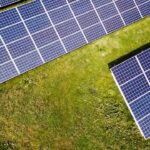Canadian Solar Clinches Record 7GW Solar Module Order in Historic Deal
In what marks a historic moment for the photovoltaic (PV) industry, Chinese company Canadian Solar announced a deal for the largest ever solar module order, amounting to approximately 7GW. The sizable contract underscores the shifting dynamics in the PV market, as Chinese PV companies predominantly operate overseas.
With rising inventories in European PV module markets and limited future growth potential, the once-appealing Indian market becoming distant due to trade protections, and the Middle Eastern market burgeoning from a smaller base, the American market presents a complex challenge riddled with contradictions and controversies. Amid this backdrop and the ever-evolving geopolitical and international trade atmosphere, PV companies grapple with difficult decisions.
Canadian Solar, through its actions, provides a constructive solution to this dilemma. On August 8, Canadian Solar announced that its wholly-owned subsidiary, Canadian Solar (USA) Inc., has secured a long-term sales agreement for PV modules in the US market with an overseas client. The size of the sale is approximately 7GW, of which the client retains a flexible option for 3GW, contingent upon two years’ advance confirmation.
The following day, the company further disclosed that, with the client’s permission, it could reveal the client’s details. The customer is EDF-RE US Development, LLC, a subsidiary of ELECTRICITE DE FRANCE, one of the world’s largest electricity providers. The contract covers high-efficiency N-type TOPCon PV modules, manufactured at Canadian Solar’s new factory in Texas.
By our accounts, this 7GW order sets an unprecedented record, marking the largest single order in PV history. Moreover, it targets the US market, emphasizing its strategic importance. While this groundbreaking news might have missed widespread media attention, it certainly didn’t escape investors. Over the course of August 9 and 10, Canadian Solar’s stock surged by 8.95%.
Historically, sizeable orders in the PV industry usually pertained to long-term silicon supply agreements, given the intense demand for silicon. However, super-large contracts for PV modules are rarer due to their nature as a more commoditized end product. With the current expansion cycle, supply chains have relaxed, and competition is rife. Although there’s a current demand for N-type TOPCon cells and modules, by the contract fulfillment period between 2024-2030, this tightness is unlikely to persist, making this order particularly valuable for Canadian Solar, an industry fifth in shipments.
Based on prevailing prices, the estimated value of this order could reach an astounding $25.9 billion.
Historically, China’s Jinko Solar held records for large overseas orders. However, none have approached the magnitude of Canadian Solar’s recent achievement, even considering previous significant contracts from First Solar or Waaree Energies in India.
Why did Canadian Solar bag this mega-order? Their global strategy has always been exemplary. Regulatory shifts like the USA’s Inflation Reduction Act (IRA), which allowed local solar project developers to use Chinese-made PV cells in their modules and still qualify for tax incentives, played a crucial role. With stipulations that at least 40% of the components, including modules, tracking systems, and inverters, must be manufactured in the US, Canadian Solar’s local production becomes invaluable.
In July 2023, Canadian Solar announced a $250 million investment in a cutting-edge solar PV module factory in Mesquite, Texas. This facility, slated to begin operations in the fourth quarter of 2023, will have an annual output of 5GW and create approximately 1,500 technical positions.
This strategic move by Canadian Solar is timely. By June 2024, the US will no longer offer tariff exemptions on PV products from Vietnam, Thailand, Malaysia, and Cambodia. This window of opportunity, therefore, is fleeting.
In the complex landscape of today, the decision for Chinese PV enterprises to establish manufacturing in the US is not straightforward. Still, with firms like Hanwha and Vikram Solar ramping up capacities, it’s clear that the PV market is evolving at an unprecedented pace.



